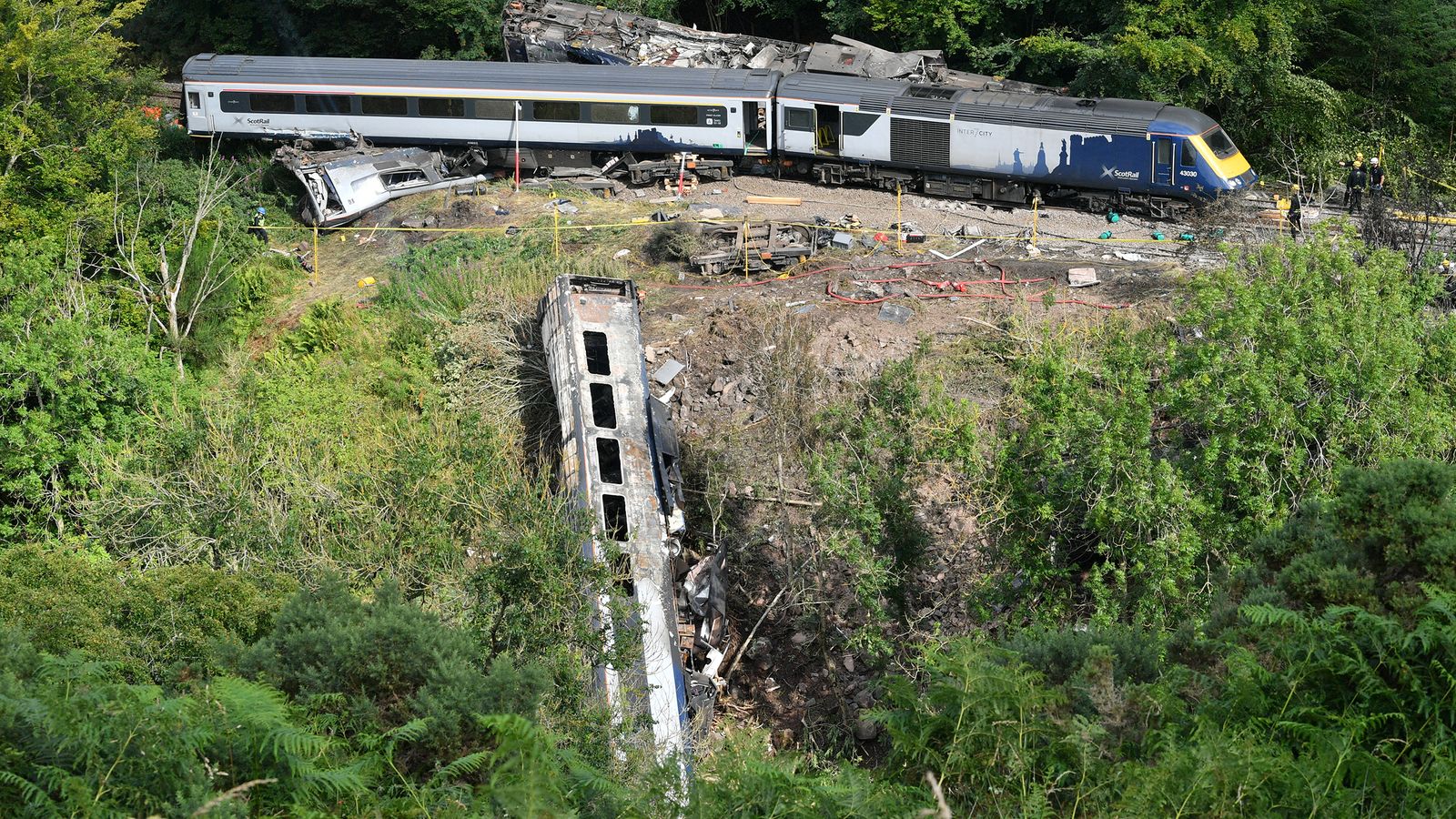Network Rail has been fined £6.7m after pleading guilty to health and safety failings over a train crash that claimed three lives.
The fine was originally going to be £10m, but was reduced by a third in recognition of the guilty plea.
Train driver Brett McCullough, 45, conductor Donald Dinnie, 58, and passenger Christopher Stuchbury, 62, died when the train derailed at Carmont, near Stonehaven in northeast Scotland, on 12 August 2020.
The morning ScotRail service from Aberdeen to Glasgow Queen Street derailed after it hit a landslide following heavy rain.
Of the nine people on board the 6.38am service, three were killed and six were injured after the train hit gravel and other debris that had washed onto the track.
On Thursday at the High Court in Aberdeen, Network Rail admitted a charge covering the period from May 1 2011 to August 12 2020.
It admitted it failed to ensure, so far as was reasonably practical, that railway workers not in its employment and members of the public travelling by train were not exposed to the “risk of serious injury and death from train derailment” as a result of failures in the construction, inspection and maintenance of drainage assets and in adverse and extreme weather planning.
Network Rail pleads guilty over its involvement in train crash in Scotland which left three dead
Rail strikes: Operators warn of major disruption on last weekend of school summer holidays
Network Rail to face prosecution over fatal train derailment near Stonehaven
The company also admitted it failed to impose an emergency speed restriction “in absence of current information about the integrity of the railway line and drainage assets between Montrose and Stonehaven”, and failed to inform the driver that it was unsafe to drive the train at a speed of 75mph or caution him to reduce his speed.
The court was told an investigation found if a drainage channel that overflowed on the day of the crash had been built correctly it would have been able to cope with the washout of gravel that led to the incident.
The Rail Accident Investigation Branch (RAIB) found there had been no inspection of the drain following its completion and Network Rail failed to ensure it was built to the correct specification by Carillion, which was subcontracted to undertake the work more than a decade ago.
Carillion went into compulsory liquidation in January 2018.
Be the first to get Breaking News
Install the Sky News app for free
Advocate depute Alex Prentice KC, prosecuting, told the court there had been severe weather resulting in disruption across the rail network in northeast Scotland on the day of the crash.
He said passengers affected by cancelled trains as a result of torrential rain described it as “biblical”, and both Aberdeenshire Council and Aberdeen City Council had declared a major emergency due to the weather.
Read more from Sky News:
King shares message on anniversary of Queen’s death
This heatwave is very unusual – here’s why
Mr Prentice told the court that recordings of a conversation between Mr McCullough and the Carmont area signaller prior to the crash confirmed the train driver queried whether there was a reduced speed limit in place on the line to Stonehaven.
The signaller told Mr McCullough: “Eh no, everything’s fine between myself and Stonehaven.”
The court was told that when Mr McCullough pulled the emergency brake, there was “insufficient time” for it to have any impact on the train’s speed.
The crash happened shortly before 9.40am when the train was on its way back to Aberdeen.
The train hit the side of a bridge, causing its power car and one of its four carriages to fall down an embankment.






















